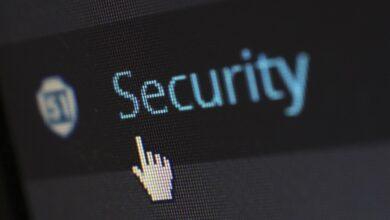Secure Your Crypto – 10 Essential Tips

In the ever-evolving landscape of digital finance, securing your cryptocurrency wallet has become an essential priority for anyone venturing into this brave new world of decentralized assets. With the meteoric rise in the value of cryptocurrencies, the stakes have never been higher. The allure of potential gains is matched only by the dangers that lurk in the shadows–hackers, phishing scams, and other malicious entities are all too eager to exploit any lapse in your security. Thus, it becomes imperative to adopt robust strategies for protecting your digital wealth.
This article presents a curated list of ten essential recommendations aimed at safeguarding your cryptocurrency wallet. Each strategy is meticulously crafted to address the unique vulnerabilities inherent in the digital realm. By following these guidelines, you not only enhance your security posture but also cultivate a deeper understanding of the mechanisms at play in this complex ecosystem. In doing so, you will be better equipped to navigate the intricate web of opportunities and threats that characterize the world of crypto.
As we delve into the best tips for securing your cryptocurrency wallet, it is vital to approach this task with both vigilance and a sense of responsibility. The protection of your assets is not merely a technical endeavor; it is a reflection of your commitment to safeguarding what you have worked hard to acquire. Let us explore these top strategies together, fostering a culture of security that empowers every individual engaged in this digital frontier.
Choose Strong Passwords: Essential Guidelines for Securing Your Cryptocurrency Wallet
In the ever-evolving landscape of cryptocurrency, the importance of securing your digital wallet cannot be overstated. With millions of dollars lost to hacks and thefts, adopting robust security measures is not merely recommended; it is essential. One of the foundational strategies in safeguarding your crypto assets is the creation of strong passwords. A weak password can serve as an open invitation for malicious actors seeking to exploit vulnerabilities in your security framework.
To formulate a strong password, it is vital to follow certain best practices. First, consider using a combination of uppercase and lowercase letters, numbers, and special characters. This complexity makes it significantly harder for attackers to employ brute-force methods to crack your password. Additionally, avoid using easily guessable information such as birthdays or common words. Instead, opt for a passphrase–a sequence of random words combined with numbers and symbols–to enhance both memorability and security.
One of the ten recommendations for protecting your cryptocurrency wallet involves regularly updating your passwords. Cybercriminals are constantly developing new techniques to breach security systems, making it crucial to adapt proactively. Set a reminder to change your passwords every few months, and ensure that each update adheres to the principles of complexity and uniqueness. Using a password manager can also streamline this process, allowing you to generate and store secure passwords without the burden of memorization.
Moreover, enabling two-factor authentication (2FA) adds an additional layer of protection. This strategy requires not only your password but also a second form of verification–often a code sent to your mobile device or generated by an authentication app. By integrating 2FA into your digital wallet security protocols, you significantly reduce the likelihood of unauthorized access, even if your password is compromised.
Another essential guideline in safeguarding your cryptocurrency wallet is keeping software up to date. Whether it’s your wallet application or the operating system on your devices, regular updates often contain critical security patches that address known vulnerabilities. Ignoring these updates can leave your digital assets susceptible to exploitation by cybercriminals who actively search for outdated software as easy targets.
Lastly, consider diversifying where you store your cryptocurrency. While online wallets offer convenience, they also present inherent risks. Cold storage solutions–such as hardware wallets or even paper wallets–provide an offline alternative that minimizes exposure to online threats. By employing a combination of hot and cold storage methods, you can enhance overall security while still maintaining access to your digital assets when needed. Following these strategies will place you in a stronger position to protect your cryptocurrency wallet from potential threats in this dynamic digital economy.
Top 10 Recommendations for Safeguarding Your Cryptocurrency Wallet
In the ever-evolving realm of cryptocurrency, securing your digital assets is paramount. The adoption of two-factor authentication (2FA) stands as one of the most essential strategies for protecting your wallet from unauthorized access. By requiring an additional verification step–such as a code sent to your mobile device or a biometric scan–you create a formidable barrier against potential hackers. This seemingly simple measure dramatically enhances the security of your crypto holdings, making it significantly more challenging for intruders to gain access.
However, enabling 2FA is merely one of ten pivotal guidelines that form the cornerstone of effective wallet security. Another critical recommendation involves choosing a reputable wallet provider with a strong track record in safeguarding user assets. Surveys and studies consistently show that wallets with robust security features, such as cold storage options and comprehensive encryption protocols, substantially reduce the risks associated with cyber threats. Always conduct thorough research before selecting a platform; prioritize those that have experienced minimal breaches and exhibit transparency in their security practices.
One must also consider the importance of regularly updating software associated with your cryptocurrency wallet. Outdated software can harbor vulnerabilities that are easily exploited by cybercriminals. By keeping your wallet application and any associated devices up to date with the latest security patches, you minimize potential attack vectors. This practice, while often overlooked, is one of the best strategies for maintaining long-term protection over your digital assets.
Moreover, being vigilant about phishing attacks is crucial in today’s digital landscape. Cybercriminals frequently employ deceptive emails or websites designed to trick users into divulging sensitive information. To safeguard your cryptocurrency wallet, always verify the authenticity of any communication claiming to be from your wallet provider. Look for inconsistencies in URLs or email addresses and never click on links unless you are certain of their legitimacy. Employing common sense alongside technical measures can significantly enhance your overall security posture.
Additionally, employing a hardware wallet for storing larger amounts of cryptocurrency is highly recommended. Hardware wallets offer an offline solution that keeps your private keys away from internet-connected devices, rendering them immune to online attacks. This method serves as an essential strategy for anyone serious about protecting their investments. Consider utilizing hardware wallets in conjunction with other protective measures to create a multi-layered defense against potential threats.
Finally, regular monitoring of your accounts and transactions cannot be understated. Establish a habit of reviewing account activity to detect any unauthorized transactions promptly. Coupled with setting withdrawal limits within your wallet settings, this practice can serve as an early warning system against potential breaches. With these ten best recommendations rooted in practicality and informed by empirical data, you can fortify your cryptocurrency wallet against various threats that loom in the digital sphere, ensuring that your investment remains secure in an increasingly volatile environment.
Top 10 Tips for Securing Your Cryptocurrency Wallet
In the ever-evolving landscape of cryptocurrency, securing your digital assets is paramount. Among the myriad of strategies available, using hardware wallets stands out as an essential recommendation. These physical devices are designed specifically for safeguarding your crypto holdings, providing a decentralized and offline means of storage. Unlike software wallets, which can be susceptible to malware and phishing attacks, hardware wallets keep your private keys away from the internet, significantly reducing the risk of unauthorized access.
When considering how to secure your cryptocurrency wallet effectively, it is imperative to adopt a comprehensive approach. The first tip in this top ten list is to always enable two-factor authentication (2FA) on any online platforms associated with your wallet. This additional layer of protection requires not just your password but also a second form of verification, such as a code sent to your mobile device. Moreover, keeping your recovery phrases in a secure location–preferably offline–ensures that you have access to your funds even if the wallet is lost or damaged.
Another crucial guideline involves regular updates and patches for both your wallet software and hardware. Developers frequently release updates that address vulnerabilities and enhance security features. By maintaining the most current versions, you are actively protecting against potential threats. Additionally, diversifying where you store your cryptocurrency can serve as an effective strategy; consider spreading your assets across multiple wallets to mitigate the impact of a single point of failure.
Lastly, educating yourself about common scams and fraudulent schemes is vital for protecting your digital wallet. Awareness acts as a formidable defense; knowing the signs of phishing attempts and fake exchanges enables you to navigate the crypto space with greater confidence. By adhering to these ten essential tips–utilizing hardware wallets, enabling 2FA, keeping software updated, diversifying storage, and cultivating awareness–you can fortify your digital assets against many potential threats in this dynamic environment. In essence, securing your cryptocurrency wallet is not merely an act of caution but rather a necessary navigational skill in the complex world of digital finance.
Conclusion: The Imperative of Regular Software Updates for Your Cryptocurrency Wallet
In the ever-evolving landscape of cryptocurrency, where digital assets are both opportunities and vulnerabilities, safeguarding your wallet emerges as a paramount concern. The guidelines outlined in our top 10 recommendations provide a robust framework for protecting your cryptocurrency investments. Yet, one principle stands out among the rest: the necessity of regularly updating your software. This essential practice not only fortifies your defenses against emerging threats but also ensures that you remain equipped with the latest features designed to enhance security.
Consider this: just as one would not leave their physical assets unguarded in a decaying vault, neglecting software updates is tantamount to ignoring an open door in the world of digital finance. The best strategies for securing your crypto wallet hinge on proactive measures–most notably, keeping your software up to date. As you implement the aforementioned strategies for safeguarding your digital wallet, let this commitment to regular updates serve as a cornerstone of your security endeavors.
- Stay Informed: Follow developments in the cryptocurrency space to understand new threats.
- Enable Automatic Updates: Whenever possible, allow your wallet software to update automatically.
- Use Reputable Providers: Choose wallets from well-established companies that prioritize security.
- Backup Regularly: Maintain backups of your keys and recovery phrases to prevent loss.
- Employ Two-Factor Authentication: Add an extra layer of security wherever possible.
The journey towards mastering the art of crypto security is an ongoing one, filled with both challenges and rewards. By adhering to these top 10 guidelines, particularly the essential habit of updating software regularly, you fortify your defenses against the myriad threats that loom in the digital shadows. Embrace these strategies with diligence and enthusiasm, and you will find yourself not merely surviving but thriving in the dynamic realm of cryptocurrency.





